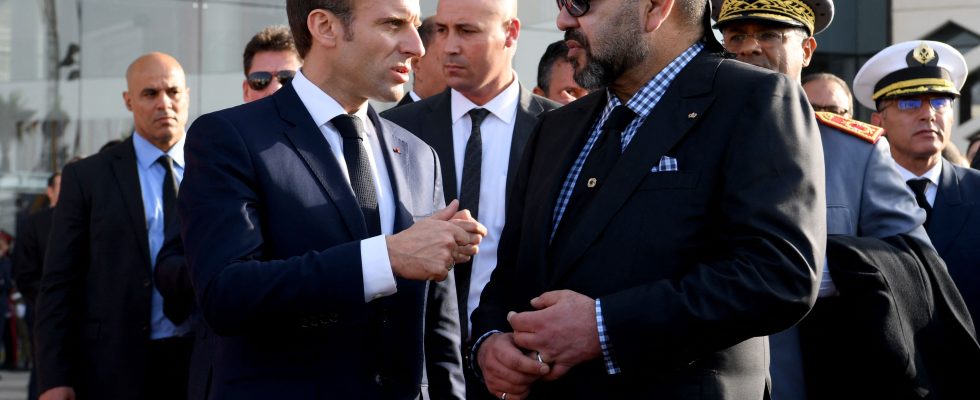It is an understatement to say that his appointment is a priori far from being a signal of appeasement. While diplomatic relations between Paris and Rabat have been extremely tense for several years now, the name of Stéphane Séjourné, since January the new Minister of Foreign Affairs and head of French diplomacy, was not necessarily at the top of the list to try to resolve the situation.
And for good reason: in January 2023, the kingdom took very personally the fact of being targeted by the vote on a resolution in the European Parliament denouncing the deterioration of press freedom in Morocco, including… Stéphane Séjourné, at the time head of the centrist Renew group in Brussels, had been one of the main architects.
And yet, at the request of the President of the Republic himself, it is he who will “personally” work towards rapprochement between Paris and Rabat, announced the new boss of the Quai d’Orsay in a daily interview West France, explaining that Emmanuel Macron asked him to “write a new chapter” in the Franco-Moroccan relationship. “We have had several contacts since my arrival” in post on January 12 with the Moroccans, said Stéphane Séjourné.
A decade of tensions
If it is necessary to write a “new chapter”, it is because the pages written for almost a decade now are marked only by friction, resentment and degradation. A deterioration began in February 2014 with the indictment for acts of torture of Abdellatif Hammouchi, the head of Moroccan intelligence, close to the king. An incident that became “a real state affair”, recalled for The Express last September the historian Pierre Vermeren, author of Morocco in 100 questions (Editions Tallandier).
There was of course then the Pegasus scandal, and Morocco’s use of this Israeli spyware in 2019 to wiretap journalists, politicians and even the President of the Republic Emmanuel in France (and around the world). Macron himself. Another significant factor: the policy of rapprochement with Algeria desired by the French head of state, while Algiers broke off its diplomatic relations with Rabat in 2021.
The epicenter of the controversies was perhaps reached last September, when Morocco decided to ignore aid from France after the dramatic earthquake which left nearly 3,000 dead and 6,000 injured. Relations then seemed to be at an impasse before the French ambassador to Morocco made a public mea culpa in November and a Moroccan ambassador to France was appointed after months of vacation, thus initiating a period of thaw.
“Regain trust”
Without forgetting, of course, the thorny issue of Western Sahara, so important in the eyes of Morocco, which has been facing the independence aspirations of the Polisario Front, its sworn enemy, for almost fifty years. “For every Moroccan, the question of Western Sahara belonging to the Cherifian kingdom is an existential issue,” explained to The Express Kader Abderrahim, lecturer at Sciences Po and author of Geopolitics of Morocco (Ed. Bibliomondes). If France has never de facto opposed Morocco’s demands on the issue, it has never been very directly involved.
It is perhaps on this subject that Stéphane Séjourné seems to be putting forward a diplomatic avenue. “In the past, we have always been there, even on the most sensitive issues such as Western Sahara, where France’s clear and constant support for the Moroccan autonomy plan has been a reality since 2007,” insists the head of the Quai d’Orsay in the columns of Ouest France, adding that he wanted to “carry out common priorities, write a new page and have a new political agenda between us”, also affirming that he wanted to “regain the trust” of Morocco.
What could be better than the reaffirmation of Paris’ positions on the subject of Western Sahara for this. But whoever says rapprochement with Rabat means irremediably rising tensions with Algiers. A diplomatic balancing act that the new head of French diplomacy will have to undertake to achieve his objectives.
